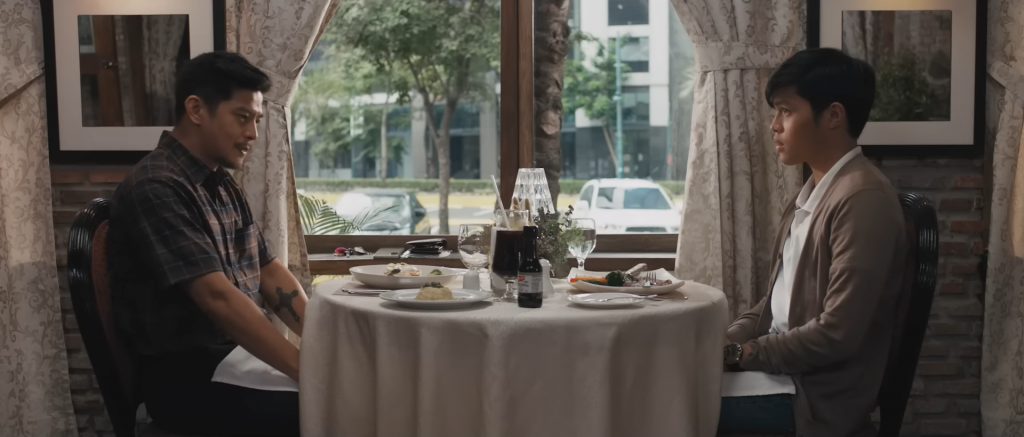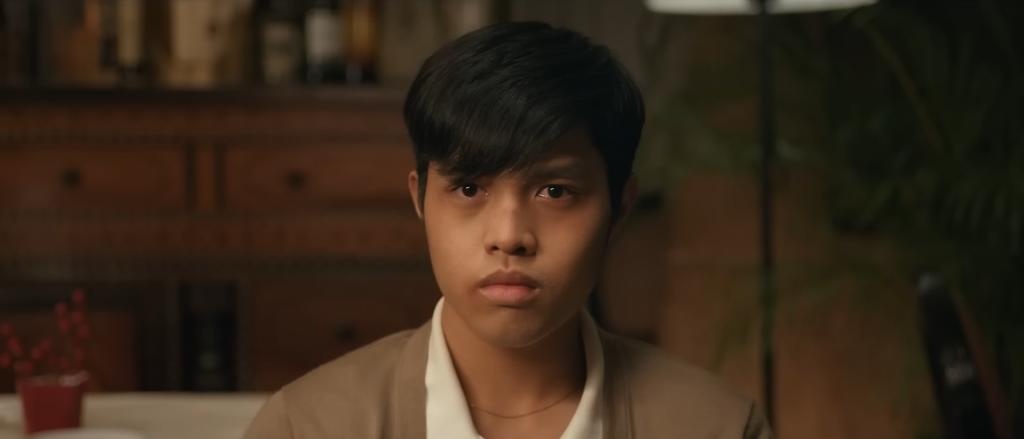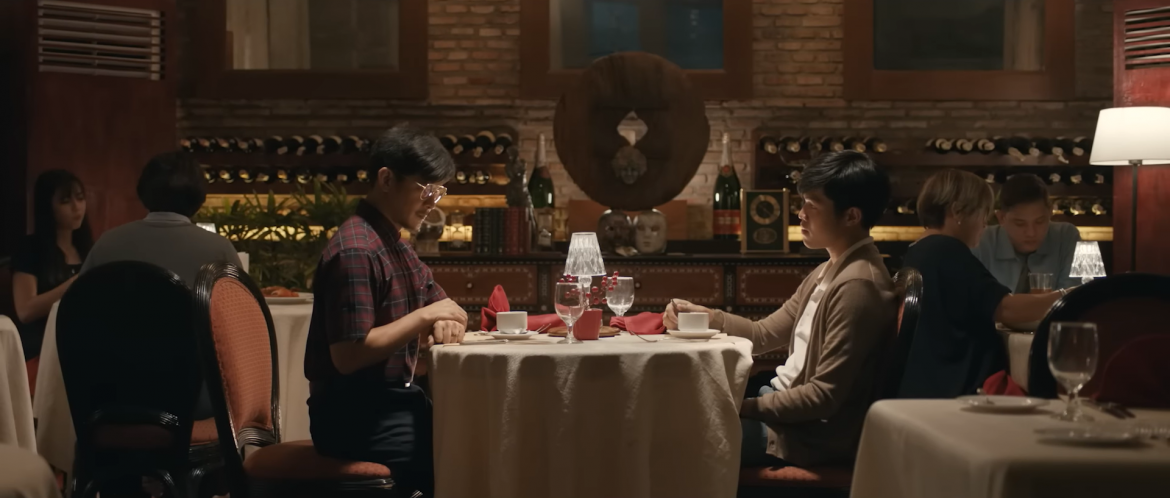Two men dining in a restaurant in BGC and talking for 90 minutes sounds perfect for a stage play but not for the big screen. But in the inaugural Summer MMFF Best Picture About Us But Not About Us, director Jun Lana and his team made an intense, intriguing, and shocking film that explores power dynamics through the dialogue of only two characters.

Gay literature professor Eric (Romnick Sarmenta) is set to meet someone in BGC. Before going to the restaurant, he checks himself in the mirror, freshened up, and applied some makeup to hide his wrinkles. It looks like he’s going on a date. It’s not a date, though. He’s meeting his student Lance (Elijah Canlas), who was already at the fancy restaurant waiting for him. Eric first noticed Lance’s helmet, which he noted has some resemblance to the helmets of the electric music duo Daft Punk. From there, Eric and Lance had some light exchanges about pop culture and other common interests. The intimacy between the two is scorching but there were some reservations covering the flame. Are they in an affair? Is this their secret spot for their clandestine meetings?

From the light banter, the two exchanged and unpeeled deeper, darker, and more disturbing topics concerning both of them. They are aware of the rumors surrounding them. It’s a platonic relationship, Eric insists not just on Lance but also on his partner Marcus, who, we learn from the exchanges, died from taking his own life. Such an act is a complicated topic that should be faulted to just one reason but Lance cannot help but to think and ask: Is he the reason why Marcus is dead?

Crafting a seamless dialogue peppered with light memories, traumatizing recollections, and commentaries about the literary community and the academe is a gargantuan task but Lana, who also wrote the screenplay, made it look easy and authentic. Lana carefully commands the direction of the conversation by introducing new storylines but not making it too overwhelming to digest. The screenplay is aware of its tendencies of bringing a topic out of nowhere but it knows how to jump back and connect it to the main point. At some point, the conversations were realistic, I cannot help but wonder if this is beyond Lana’s inspiration from his experiences as he earlier claimed.
Lana’s screenplay potential was further fleshed out because it was equipped with the talented hands of acclaimed director of photography Neil Daza. His camerawork made the small space in the restaurant bigger, filled with the mood and tension lingering between Eric and Lance. Daza further flexes his skills during the transitions to the flashbacks of Eric and Lance having their separate conversation with Marcus.
Speaking of the two protagonists, Sarmenta (who won Best Actor at the 1st Summer MMFF) and Canlas (who was given a special jury prize for this role) made the screenplay alive with their powerhouse performances, transforming themselves into the complex characters of the film. From the nuances in their body language to the tug-of-war exchanges about responsibility, excellence, and prestige, Sarmenta and Canlas made me hold my breath as they plunged into the pits of their deepest thoughts and emotions. The two further floored me when they were acting, not making a mere impression, their observations of Marcus, particularly Sarmenta who breathes the life of his character’s late partner.
During the first flashback between Eric and Marcus, the latter brought up the concern of being queer and the responsibility of their actions in a heteronormative society. Featuring a queer experience, About Us also has the same, inescapable task. Some critics raised their eyebrows at Lana’s decision to cast straight actors in queer roles and some blasted the film for having lack to no core in considering its possible impact on the LGBT community’s image in a predominantly Catholic country. I asked my friends before about the film and its responsibility as an art form. There was some consensus: (1) The casting decision made sense considering the complicated ecosystem of hiring actors in the local industry and (2) the film lacked the courage to further call out the dirty politics in the literary world. Albeit its shortcomings as a film featuring queer narratives, About Us contributes to the selection of local LGBT films, diversifying the stories that the community and its outsiders can select, watch, and experience. The film is unapologetically messy, celebrating the lack of ideal representation and morals of the two characters. It’s a sinfully delicious dish that I would always think about, just like how Lance loves eating Mcdonald’s apple pies.
About Us But Not About Us was screened at the 1st Summer Metro Manila Film Festival.




